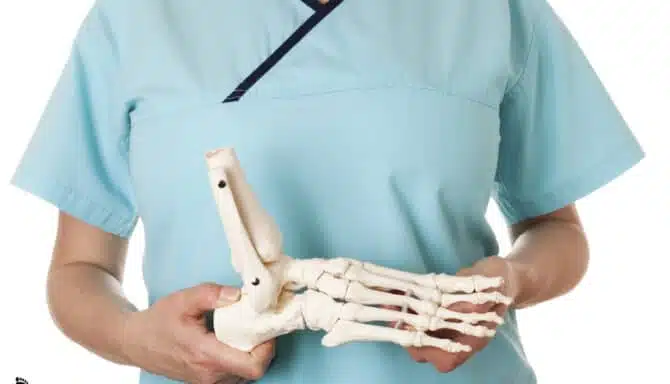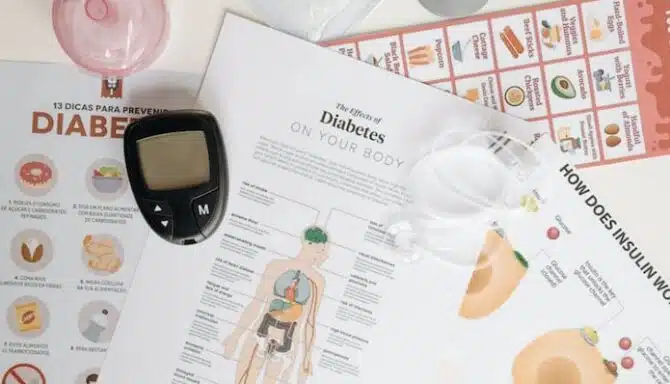Who doesn’t love talking about food? Eating a balanced diet full of vital nutrients is something that we should always strive to achieve. A healthy diet can help us accomplish various health goals, such as losing weight or fighting future illness. What’s more, there are specific nutrients that are great for our feet! We’re here to help you understand how some nutrients can prevent inflammation, promote bone health, help with neuropathy for diabetics, and shield our feet from potential stress fractures and muscle soreness. We’ll also let you know what foods to look out for when you’re looking to include more of these superstar nutrients into your diet! Keep in mind, incorporating these foods into your diet can work wonders, however, you should still practice At-home foot care in other ways, and schedule an Annual foot care assessment at your local Toronto foot clinic.
So, What Nutrients Are Great For Foot Health?
Below you will find a general breakdown of the nutrients we’ll discuss in this article. Don’t worry, we’ll go over them in more detail and let you know what foods to look for! Depending on your foot health needs, you’ll want to incorporate meals rich with the following into your diet:
- Vitamin C: Foods with high levels of vitamin C can help fight inflammation.
- Calcium: Calcium helps keep our bones and joints healthy. Our feet, ankles and lower legs are no exception!
- B vitamins: Adequate B vitamin intake can help with diabetes-related foot conditions, such as swelling or other complications caused by Neuropathy.
- Vitamin D: According to Foot Health Facts, your risk of muscle soreness, stress fractures, and osteoporosis can decrease when you consume enough vitamin D.
What Foods Have Enough Vitamin C?
Foods rich in vitamin C are great for our foot health, as this superstar nutrient can fight foot pain caused by inflammation. Common foot conditions caused by inflammation include Plantar fasciitis, otherwise known as inflammation of the plantar fascia tissue. Furthermore, Achilles tendon pain is typically caused by inflammation. If you suspect you have Achilles Tendinitis, or plantar fasciitis, or are at risk of developing either condition, you should start incorporating at-home foot care strategies into your routine. This should include eating a variety of vitamin C dense foods.
Citrus fruits such as oranges and grapefruits have plenty of vitamin C. You can also incorporate lemon juice and lime juice into your cooking and meals for an extra vitamin C boost! Berries, broccoli, Brussels sprouts, potatoes and peppers are also known for their substantial amount of vitamin C.
How Can I Get Enough Calcium?
Calcium helps nurture bone health by protecting and strengthening the bones and joints in our feet, ankles, and lower legs. Deteriorating bone health can cause a wide array of problems for these areas, potentially leading to a bone spur on top of the foot, Heel spurs, Osteoarthritis, osteoporosis, and increased risk of fractures. Foods rich with calcium include staple dairy products such as milk, cheese and yogurt. If you’re lactose intolerant or have other dietary restrictions, not to worry, you can speak with you doctor about possibly taking a daily supplement. Furthermore, Mayo Clinic recommends the following non-dairy sources of calcium:
- Fortified foods, such as almond milk, orange juice, and cereals. Make sure to double-check labelling to confirm.
- Cooked broccoli.
- Greens, including kale and collard greens.
- Various beans, including garbanzo, kidney and navy.
- Oranges.
- Papaya.
- Canned sardines and canned pink salmon.
How Can I Get Enough B Vitamins?
Vitamins B-1, B-6 and B-12 should become a part of your dietary intake if you suffer from Diabetes and associated foot complications. These vitamins help with Nervous system function by protecting nerve endings, helping with muscle function, preventing cellular damage and keeping cells strong. Diabetics should speak with their family doctor about supplements or injections if they struggle to get enough B vitamins with their food intake alone. Keep in mind, diabetics should also always be aware of the associated risks of neuropathy, such as swelling and foot ulcers, and keep up with regular visits with a Chiropodist.
Foods rich with B vitamins include various protein sources, such as fish, poultry, milk and eggs. Keep your eyes peeled for fortified items, including cereals, if you’re a vegan or vegetarian. Other options packed with B vitamins include oranges, leafy greens and chickpeas.
What Foods Have Enough Vitamin D?
Ah yes, vitamin D. Infamously known as the vitamin we struggle to get enough of during the gloomy fall and winter months, this multifaceted vitamin can also promote foot health. Adequate vitamin D in your diet, or appropriate supplements, can help with foot pain and improve muscle function. Similar to calcium, a severe lack of vitamin D can also put you at risk of developing bone spurs and increase your risk of suffering fractures or developing osteoporosis. Vitamin D supplements are widely considered to be common and safe since it’s quite difficult to get enough vitamin D from food sources alone during the fall and winter. Still, if you have any questions or are wary of supplements, you can speak with your doctor.
It can be a challenge to include enough vitamin D with our food intake alone. However, you should still put in a solid effort. Foods with vitamin D include mushrooms and fortified products, like soy milk and oatmeal. Animal products are also rich in vitamin D, particularly fish, including salmon, sardines and canned tuna. If you enjoy eggs, make sure to eat the yolks if you’re looking for an extra vitamin D boost!
Need More Information On Foot Health?
Eating nutrient-dense food can be great for your feet, but it’s just one of many ways to work towards excellent foot health. Our Toronto foot specialists are ready to answer any more questions you may have! We pride ourselves in effectively communicating your concerns and needs as comfortably as possible. Call anytime to ask about your specific concern and we’ll make sure to provide actionable steps towards getting your feet as happy and healthy as possible!
Call us at 416-769-FEET (3338) or Book Your Assessment Today!
Banner Image by Lukas from Pexels – Thank you!













